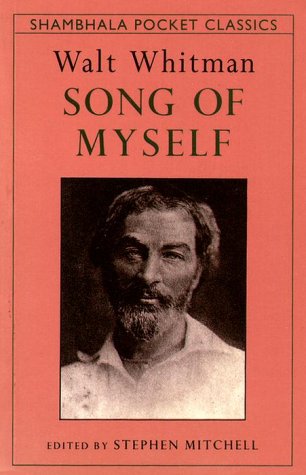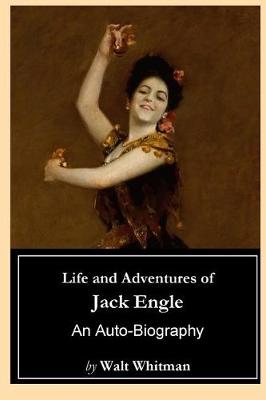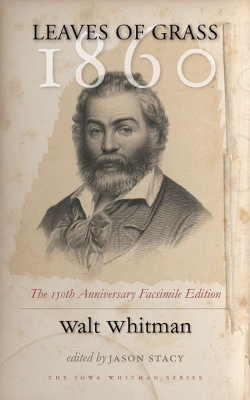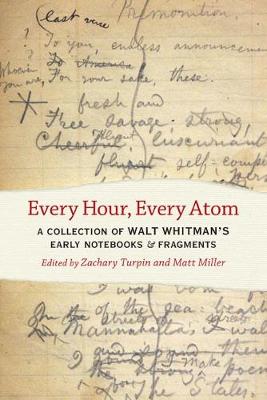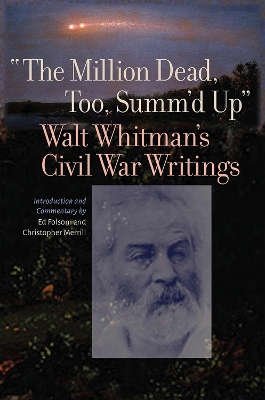Iowa Whitman
5 total works
Do I contradict myself?
Very well then I contradict myself.
(I am large, I contain multitudes.)
Abundant, ecstatic, generous, courageous - this is the first American epic poem, a celebration of selfhood and a catalogue of nineteenth-century American life of all ages and races. Revolutionary in style and controversial in content when it was first published in 1855, Whitman's masterwork has since inspired generations with its intoxicating rhythms and images, and its inclusive, praiseful joy.
THE ORIGINAL 1855 TEXT
Then it disappeared.
No one laid eyes on it until 2016, when literary scholar Zachary Turpin, University of Houston, followed a paper trail deep into the Library of Congress, where the sole surviving copy of Jack Engle has lain waiting for generations. Now, after more than 160 years, the University of Iowa Press is honored to reprint this lost work, restoring a missing piece of American literature by one of the world's greatest authors, written as he verged on immortality.
In his third edition, Whitman added 146 new poems to the 32 that comprised the second edition, reorganized the book into a bible of American civic religion that could be cited chapter and verse, and included erotic poetry intended to bind the nation in organic harmony. This 150th anniversary edition includes a facsimile reproduction of the original 1860 volume, a thought-provoking introduction by antebellum historian and Whitman scholar Jason Stacy that situates Whitman in nineteenth-century America, and annotations that provide detailed historical context for Whitman's poems.
A profoundly rich product of a period when America faced its greatest peril, this third edition finds the poet transforming himself into a prophet of spiritual democracy and the Whitman we celebrate today--boisterous, barbaric, and benevolent. Reprinting it now continues the poet's goal of proclaiming for "the whole of America for each / individual, without exception . . . uncompromising liberty and equality."
One of Whitman's most secretive projects during this time frame was a novel, Life and Adventures of Jack Engle; serialized anonymously in the spring of 1852, and rediscovered and properly published in 2017. The key to the novel's later discovery were plot notes Whitman had made in one of his private notebooks.
Whitman's invaluable notebooks have been virtually inaccessible to the public, until now. Maintaining the early notebooks' wild, syncretic feel and sample illustrations of Whitman's beautiful and unkempt pages, scholars Zachary Turpin and Matt Miller's thorough transcriptions have made these notebooks available to all; sharing Whitman's secret space for developing his poetry, his writing, his philosophy, and himself.
The real democratic reader, Whitman said, 'must himself or herself construct indeed the poem, argument, history, metaphysical essay-the text furnishing the hints, the clue, the start or frame-work,' because what is needed for democracy to flourish is 'a nation of supple and athletic minds.' Folsom and Merrill model this kind of active reading and encourage both seasoned and new readers of Whitman's war writings to enter into the challenging and exhilarating mode of talking back to Whitman, arguing with him, and learning from him.
